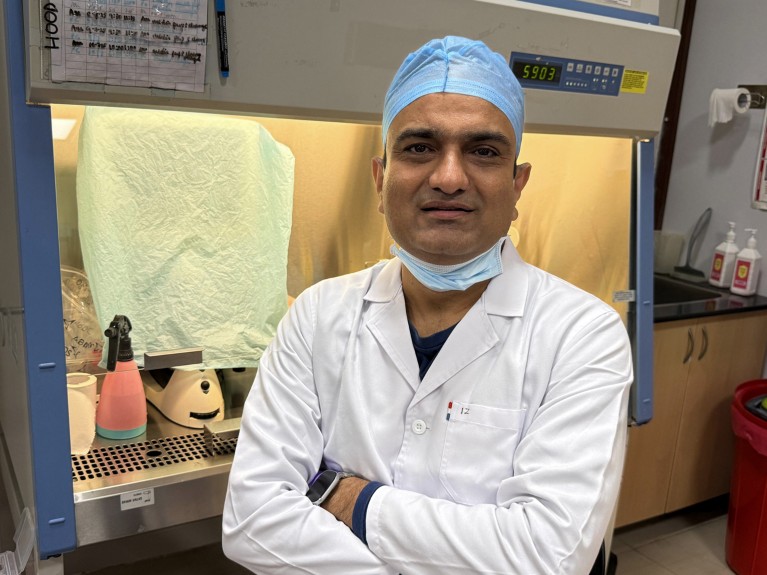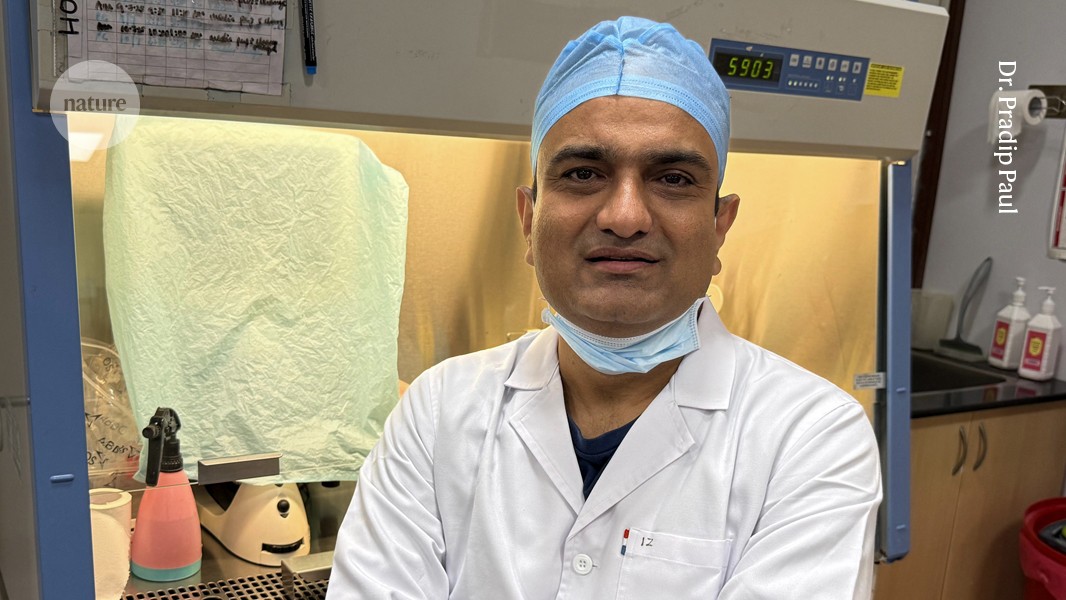
For Imtiaz Zafar, creating a deeper understanding of bipolar disorder, and helping to develop better medications, is both a personal and professional goal.Credit: Dr. Pradip Paul
For neuroscientist Imtiaz Zafar, researching bipolar disorder is both a professional occupation and a lifelong study of an experienced reality. Zafar found his mind unravelling in psychosis, paranoia and depression during his doctorate. He is now a researcher at the National Institute of Mental Health and Neuro Sciences (NIMHANS) in Bengaluru, India, where, almost a decade ago, he was a patient.
He and his co-workers now investigate the effect of mood stabilizers and antipsychotics at the molecular level in brain cells (cortical neurons and glia) generated from stem cells that are derived from the people being treated.
His quest to create a better understanding of bipolar disorder, leading to more-effective drugs, is both a professional goal and a personal mission.
Tell us how and when your bipolar disorder first developed.
My father died when I was 14. The responsibility of raising five children with no source of income fell on my mother. Soon after, she was diagnosed with depression. I loved science and dreamt of studying medicine, but chose to do a bachelor’s degree in biotechnology at Patna University, to be closer to our home there.
How my bipolar diagnosis changed my scientific career
I felt incredibly anxious and under an immense pressure to excel in competitive examinations — feelings that were identified as signs of depression. Things worsened when I started studying for a PhD at the National Centre for Biological Sciences at the Tata Institute of Fundamental Research (NCBS–TIFR), Bengaluru.
What was your mental health like during your PhD?
Because of my poor social skills, I stayed mostly isolated and started to think that my laboratory colleagues were out to sabotage me and my research.
My paranoia escalated, and I took a break from the lab. One night in 2009, my brother called me to tell me that our mother had died. I didn’t react on the phone, but locked myself in my room. A friend booked a flight home for me, but I threatened to kill myself if forced to go.
My paranoia worsened. I returned home, but had constant delusions. Sometimes, I’d search for my mother, thinking she was alive. Then thoughts of her getting killed by family and colleagues would race through my mind.
I fled to Delhi to stay with a friend, but was in fear for my life. Eventually, I was admitted to a closed psychiatry ward. Staff there thought I was schizophrenic because of my hallucinations, and my symptoms of psychosis and paranoia. I argued that what I had was depression-induced psychosis. The antipsychotics I was prescribed gave me extrapyramidal symptoms, which meant I was unable to remain still. I was discharged with instructions for lifelong medication and regular psychiatric visits. For the next three years, I was bedridden and depressed.
Eventually, I’d had enough. I was the only one in my family to have been educated to this level and I could not let it go to waste. I convinced my psychiatrist to prescribe antidepressants, which finally worked.
How did you pivot back to a career in science and restart your PhD?
I returned to work in 2013, teaching mammalian cell culture as a guest faculty member at Patna University and coaching students who aspired to sit national entrance exams for medical training. Three years later, I resumed my doctoral programme at the NCBS. This time, I focused on serotonin and its link to mental disorders, a complete departure from my earlier project.
Collection: Disability and ableism in science careers
After defending my thesis, I left for a postdoctoral fellowship at the Regenerative Medicine Institute, part of the Cedars–Sinai Medical Center in Los Angeles, California, in October 2021. A doctor there diagnosed my condition as bipolar disorder and not, as I had been told, schizophrenia.
What made you work on bipolar disorder, and how do you manage the condition?
My mother’s diagnosis made me curious about mental health, but at the time I lacked an extensive biology background. When I was diagnosed with bipolar, I understood the basics of genetics and the nervous system.




